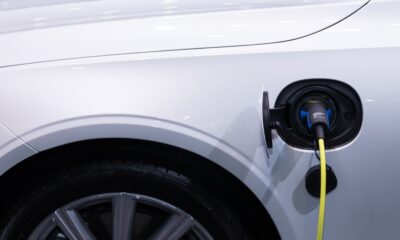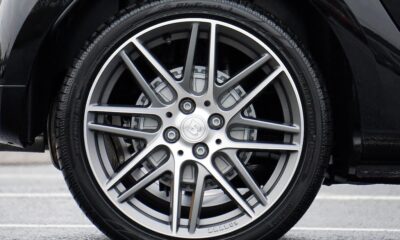Accessories & Financing
Car Loan Charge-Offs: The Ultimate Guide

Almost every day, you hear about borrowers defaulting on the loans they got from banks. Lenders who are owed money often have to write off these loans as ‘charge-offs’. You may wonder why that is. This article will tell you everything that you need to know about charge-offs and how they work.
What Is a Car Loan Charge-Off?
A car loan charge-off takes place when a lender removes an auto loan from the asset category during accounting and moves it into the liability category. The lender deems this debt “charged off” when a borrower stops making payments on an auto loan for a certain period.
This usually happens once the lender has already tried to collect the unpaid debt. By moving the debt to the liability category, it means that the lenders believe that they won’t be able to recover it.
Why Do Lenders Charge Off Car Debt?
Lenders typically charge off car loans as liability for tax purposes. Charged-off debt can include credit card debt, car loans, or other loan types.
Initially, lenders consider auto loans to be assets because they expect to receive payments from the borrower and earn income. When a borrower stops making payments on the loan, it becomes more a liability than an investment. The lender writes off the loan as uncollectible and moves on to other businesses.
The federal government sets a maximum period (typically 180 days) within which lenders must charge off an auto loan. This loan can also be charged off earlier by the lender. The federal rules require lenders to report any uncollectible debt as soon as they verify that a borrower is not able to pay.
The amount charged off by the lender might be different from the debt owed by the borrower. Generally, this charge-off amount is the amount invested by the lender in the vehicle. This amount could be impacted by the lender’s collection efforts, profits earned if they could sell the vehicle, and security interest. If the lender isn’t able to repossess the vehicle, the charge-off might be the vehicle’s estimated value.
What Happens After a Loan Charge-Off?
When a loan is charged-off, it doesn’t mean that you no longer owe the debt. The lender may transfer the debt to a collection agency. The unpaid debt could also reflect on your credit report, making it difficult for you to get any other loans. If you still fail to make the payments, the lender or credit agency could repossess your car.
When the vehicle is taken away from the borrower by its original creditor, it’s called repossession. Most auto loans are secured by the vehicle, meaning that if you don’t pay back your loan, your lender can take possession of it.
The lender or credit agency may pursue the debt in court by filing a lawsuit against you. If a court issues a judgment on the debt and garnishment is an option, creditors can legally seize the borrowers’ wages.
-

 Buyers Guide3 years ago
Buyers Guide3 years agoUltimate SUV Buyer’s Guide
-

 Reviews3 years ago
Reviews3 years agoThese Are The Best Used Trucks Under $10,000
-

 Reviews3 years ago
Reviews3 years agoSedan vs. Coupe: What’s the Difference?
-

 Accessories & Financing3 years ago
Accessories & Financing3 years agoElectric Car Maintenance: Everything You Need to Know
-

 Accessories & Financing3 years ago
Accessories & Financing3 years agoBest Snow and Winter Tires
-

 Accessories & Financing3 years ago
Accessories & Financing3 years agoBest All-Season Tires Everyone Should Know Of
-

 Buyers Guide3 years ago
Buyers Guide3 years agoFour Luxury SUVs That Are Built to Last
-

 Reviews3 years ago
Reviews3 years agoThis Is How Hybrid Cars Really Work









